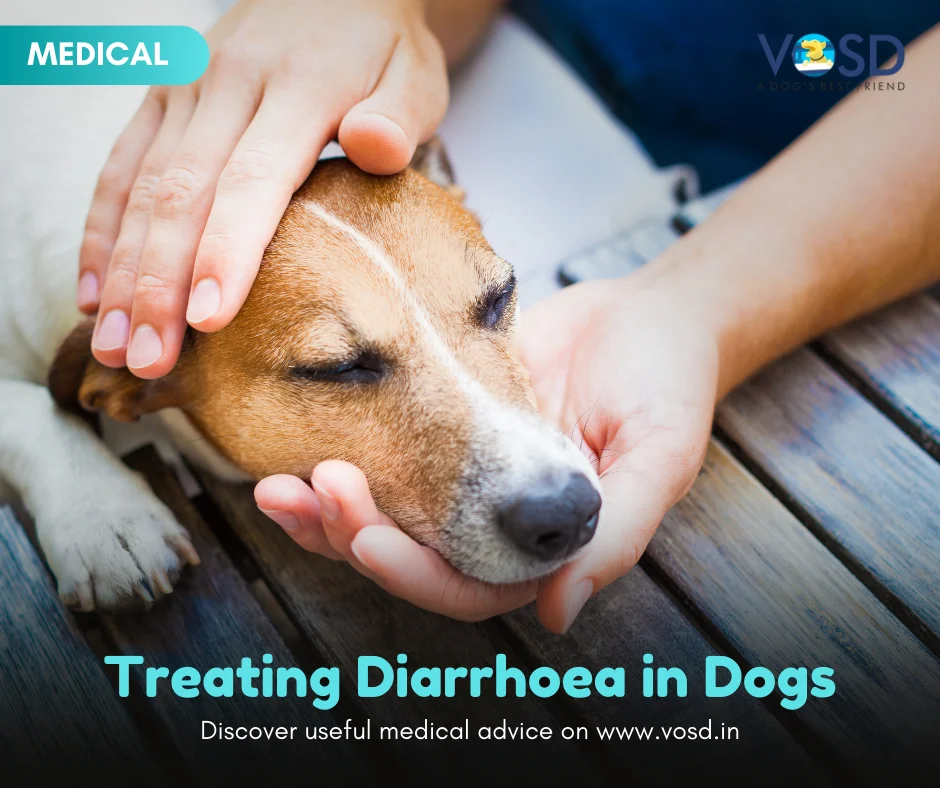When the autoimmune bodies that exist in the system fight against the healthy cells and tissue, it is, in effect, the body attacking itself. Autoimmune diseases have a trigger that may not be easily identifiable as the symptoms may not appear immediately.
When your dog has contracted Pemphigus, an autoimmune skin disease, the skin cells break down due to acantholysis. Acantholysis is when the skin cells separate, and the connection between the cells is weakened. This usually occurs in the outermost layer of the epidermis.
Pemphigus is usually a disease that affects middle-aged dogs though it may appear at all ages.
There are four forms of Pemphigus – foliaceus, vegetans, vulgaris, and erythematosus. Pemphigus is not a very common autoimmune disease, and it affects the dog’s skin. That is, all of the skin components come under attack from the antibodies. You will find dogs having blisters, ulcers, pustules, and crusting as symptoms of Pemphigus. In some cases, Pemphigus also affects the skin tissue of the gums.
Foliaceus pemphigus: In this form, the autoimmune bodies are in the outer layer of the epidermis. Your dog will develop blisters on the skin.
Pemphigus vegetans: This is a rare form and affects only dogs. It is a milder form of Pemphigus Vulgaris, and your dog develops mild ulcers.
Pemphigus Vulgaris: In this form, the autoimmune bodies sink deep under the skin, and your dog will develop severe ulcers.
Pemphigus erythematosus: This is the most common form and is not as severe as other forms.
Causes of Skin Disease, Autoimmune (Pemphigus) in Dogs
Extreme sun or UV light exposure: This can cause skin inflammations making it easy to develop an autoimmune reaction.
Hereditary predisposition: some breeds are predisposed to Pemphigus.
Autoimmune bodies: the antibodies react to the healthy tissue as though they are diseased tissue. Some dogs have a weak or defective immune system making them more susceptible to an attack on normal cells.
Underlying medical condition: In some cases, Pemphigus is triggered because of chronic allergies or cancer.
Medication: Some dogs react to medicine such as an allergic reaction, which is for the duration of the treatment; or, their immune system is compromised due to long term treatment for other illnesses.
Symptoms and Types of Skin Disease, Autoimmune (Pemphigus) in Dogs
Symptoms of Pemphigus Foliaceus in dogs
- Crusty skin, scales, ulcers and itching of the skin
- Overgrown and cracked footpads
- Cysts or vesicles in the skin
- Starts with the head, footpads, and becomes more generalized across the body
- Gums and lips
- General swelling, swelling of lymph nodes, depression, fever.
- Pain and itchiness
- Secondary infection due to cracked skin
Symptoms of Pemphigus Erythematosus in dogs
- Crusty skin, scales, ulcers and itching of the skin
- Overgrown and cracked footpads
- Cysts or vesicles in the skin
- Lesions in the head, face, and footpads
- Lips lose colour
- General swelling, swelling of lymph nodes, depression, fever.
- Pain and itchiness
- Secondary infection due to cracked skin
Symptoms of Pemphigus Vulgaris in dogs
- Fever
- Depression
- Severe mouth ulcers
- Inability to eat may lead to anorexia.
- Blisters and crusted skin
- Affects skin, gums, and lips and spreads all over the body
- Underarm and groin are affected.
- Secondary bacterial infection
Symptoms of Pemphigus Vegetans:
- General illness such as fever
- Pustules in groups forming larger patches of lesions that ooze
Diagnosis of Skin Disease, Autoimmune (Pemphigus) in Dogs
You will need to furnish the complete medical history of your dog along with recent health conditions and the symptoms. If you are aware of conditions that may have brought on these symptoms such as too much exposure to the sun, you will need to report it to the vet. The vet will need to perform a full physical exam and require complete blood work, including a chemical profile. Your dog will also need to have tests to check the electrolyte panel and a urinalysis.
More importantly, your dog’s vet will take a skin sample for testing and biopsy, using a punch biopsy. This may be done under local or general anaesthesia. The pustules and vesicles will also be diagnosed to check for the form of pemphigus affliction. Bacterial culture will be performed if there are any noticeable secondary infections found in the open ulcers.
Treatment of Skin Disease, Autoimmune (Pemphigus) in Dogs
Since Pemphigus is an autoimmune disease, your dog will require immunosuppressive drugs. The treatment will depend on the form of Pemphigus in your dog. If your dog has been severely affected, he will need to be hospitalized with supportive care. Steroids will be prescribed for a short period to control the condition. If your dog is to undergo corticosteroid treatment, you may need to change the diet plan to a low-fat diet. This will ward off pancreatitis that may occur due to the corticosteroid treatment.
In some cases, the dog will need treatment for a short duration, followed by regular check-ps. If the condition is severe, the treatment may be lifelong, including therapy to prevent a recurrence. Additionally, your dog will also have to be safeguarded from negative side effects from extended medication.
Prognosis of Skin Disease, Autoimmune (Pemphigus) in Dogs
The prognosis will depend on the type of pemphigus and the severity of the condition. Pemphigus Vulgaris has the poorest prognosis with a high rate of fatality.
Pemphigus foliaceus and erythematosus have a greater chance of recovery with immediate treatment. However, in some dogs, the treatment may be lifelong and will need additional support against side effects.
Disclaimer:
The information contained in VOSD Vet Advice™ is not intended nor implied to be a substitute for professional medical action which is provided by your vet. You assume full responsibility for how you choose to use this information. For any emergency situation related to a dog’s health, please visit the nearest veterinary clinic.
Do you find this information useful? For more medical advice, visit the VOSD website.








